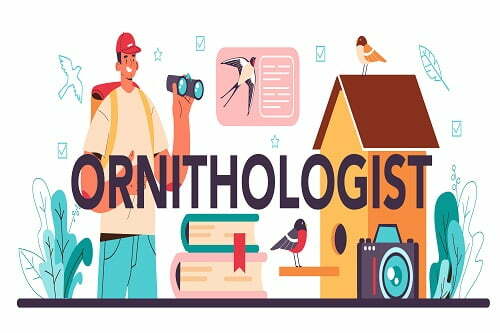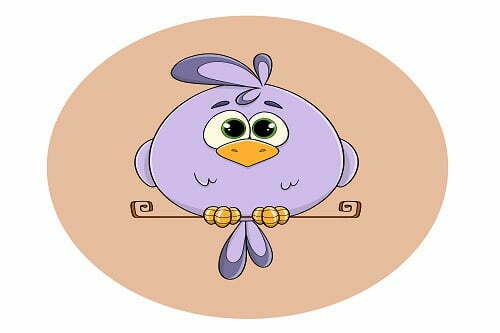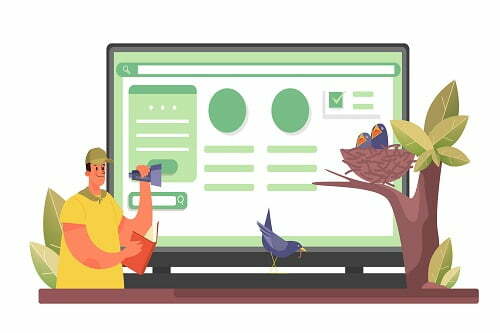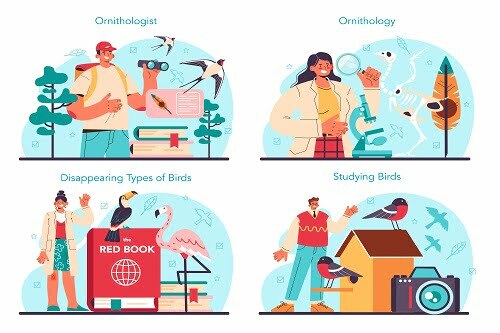Table of Contents
The study of birds | What does an ornithologist do?
Did you know? According to the United States Bureau of Labor, job opportunities for ornithologists are expected to grow by 4%! This is because an increasing number of bird species are going extinct due to human activity. And ornithologists, who are experts in the study of birds, can stop this from happening.
The job of an ornithologist is to conduct field and lab research and understand the behavior, habitat, and migration patterns of different birds. They also work toward recognizing human behavior’s effects on wildlife and finding ways in which the health and habitats of birds can be kept safe.
If you want to enter this dynamic and lucrative field, you need to have the right education, skills, and training. Read on to learn how to become a successful ornithologist!
Earn your undergraduate qualification
It is recommended that aspiring ornithologists study Science in high school. However, if you haven’t chosen Science as your elective, don’t fret. Universities will still welcome your application.
Once you’ve graduated from high school, you can opt for a bachelor’s degree in fields such as wildlife biology, zoology, statistics, and mathematics. Most of these undergraduate programs cover concepts such as vertebrate anatomy, wildlife science, genetics, ecology, and conservation biology. You will also have to complete additional lab work in order to receive your degree.
When you graduate, you will have ample employment opportunities in the field of study of birds.
Gain practical exposure

Most undergraduate programs mentioned above may have only one or two courses relevant to Ornithology. To develop your skills in the field, consider getting hands-on experience via internships or participating in work for wildlife rehabilitation centers and zoos.
Your undergraduate program will also offer you to do laboratory work, which can help you hone your practical skills. If possible, consider shadowing an ornithologist at your university. This way, you can build your practical knowledge and see how things actually work in this field.
Gaining hands-on relevant experience with laboratory work can be an impressive addition to your resume. This experience will help you stand out from your competition.
Volunteer

Another excellent way to gain hands-on experience in the study of birds is volunteering. Several recognized conservation and non-profit agencies are looking for sincere volunteers. Here, your primary responsibilities will include researching and caring for wildlife.
This will give you the exposure, knowledge, and experience you need to become an ornithologist. Moreover, adding it to the volunteer section of your resume will showcase your passion for working with wildlife and birds. This will demonstrate your dedication and sincerity toward your professional goals.
Pursue an advanced degree
Now that you have an undergraduate degree and some experience, you can work toward getting a specialized advanced degree. Getting a Master’s or a Ph.D. is a great way to develop your research-oriented skills. It allows you to practice the techniques needed in the real world. It’s also a great way to contribute significantly to this field.
There are a number of postgraduate programs in wildlife biology and zoology that offer ornithology-focused curriculums. But before giving you your advanced qualification, these university programs will require you to complete a dissertation or thesis on the study of birds. So consider the faculty and their qualifications before committing to an advanced studies program.
Search for employment opportunities

There are numerous employment opportunities available with recognized ornithology and wildlife preservation centers. They will shortlist you depending on your education and expertise. And if you have research experience and a graduate qualification, you can begin your career at a higher level.
If you have a Ph.D. in the study of birds, you gain the qualifications necessary to teach at a university level! You can also conduct an independent line of research! By taking on additional responsibilities and gaining experience, your earning potential will skyrocket.
Careers options of an ornithologist

These include-
1. Ecologist – Ecologists are professionals that explore the dynamic relationship between the environment and birds. They need to understand how different species interact and coexist. These trained individuals also spread considerable awareness of the changes in the environment and their effect on bird species.
2. Bird Biologist – A bird biologist studies the importance and behavior of different bird species and the role this plays in the environment. The professionals who pursue this line of the study of birds make efforts to understand the mechanism that governs the functioning of different biological species.
3. Bird Conservationist – A bird conservationist’s primary responsibility includes protecting and preserving different species of birds. A professional bird conservationist plays a significant role in protecting heritage and preservation of wildlife.
Key takeaways
- Ornithology is the professional study of birds. From habitat to behavior and response to climatic conditions, this is a field dedicated to understanding the bird kingdom.
- To become an ornithologist, pursue a dedicated line of study that emphasizes the field.
- Consider volunteering with bird conservation societies to gain practical exposure to the industry.
- A postgraduate program in ornithology or related fields can give you a stronger foundation for careers higher up on the corporate ladder.
- There are a number of incredible job opportunities in this field. You can choose your job depending on your interests and professional goals.
We hope you found this blog informative and interesting. If you have any questions, drop them in the comments below. Or get in touch with us!
Liked this blog? Then read: An introduction to wildlife fisheries and ecology management
FAQ
Q1. Where are ornithologists employed?
Answer – Ornithologists are employed at NGOs and wildlife sanctuaries, as well as wildlife centers and government forest departments.
Q2. How much does an ecologist earn?
Answer – An ecologist can expect to earn an average salary of USD 73,230.
Q3. What is a recommended book that every aspiring ornithologist should read?
Answer – A recommended book for aspirants is ‘Ornithology’ by Frank B. Gill.







